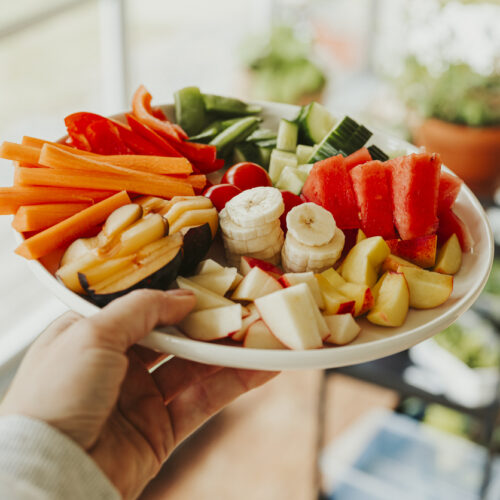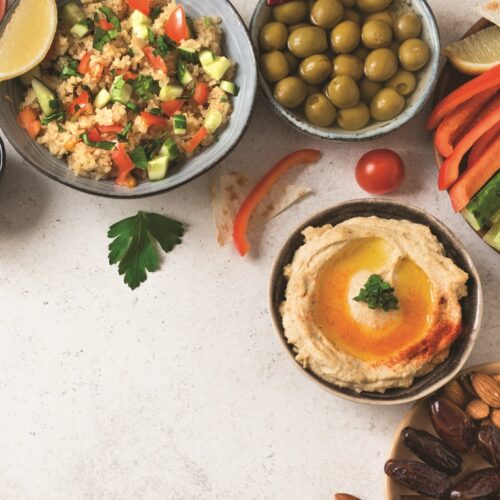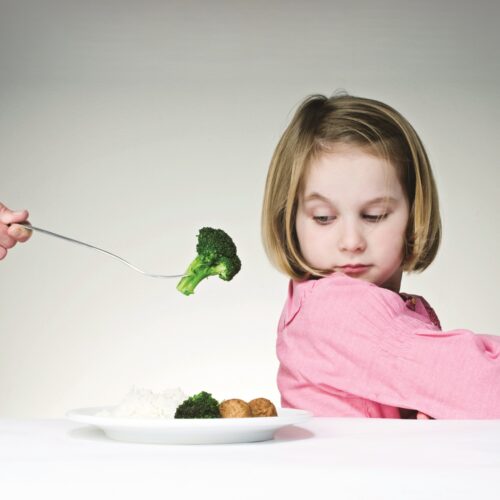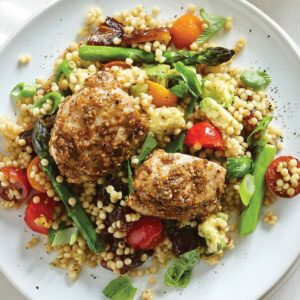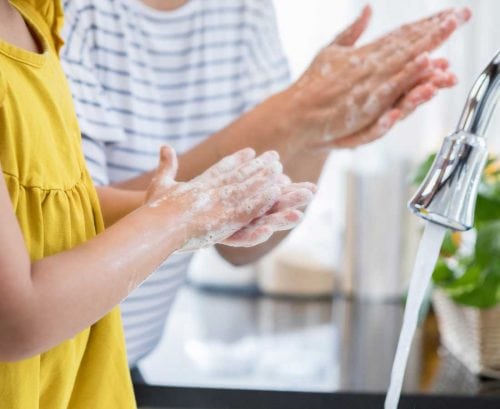
With novel coronavirus disease COVID-19 cases now on every continent, apart from Antarctica, many people are wondering how to best protect themselves from catching or spreading the illness. Healthy Food Guide sorts out the fact from the fiction surrounding coronavirus, with our guide to keeping yourself and your family safe during an outbreak.
What is coronavirus?
According to the World Health Organization (WHO) coronaviruses are a large family of viruses that include the common cold and more serious diseases such as Middle East respiratory syndrome (MERS-CoV) and severe acute respiratory syndrome (SARS-CoV).
The novel coronavirus being talked about right now is a new strain of coronavirus that has not been previously seen in humans. COVID-19 is also now called severe acute respiratory syndrome coronavirus 2 or (SARS-CoV-2).
Coronaviruses are zoonotic, which means they can be transferred between animals and humans. At this stage, it’s not confirmed where COVID-19 may have come from, but a live animal market in Wuhan City in Mainland China has been temporarily closed in relation to the outbreak.
Who is affected by the outbreak?
At this time, COVID-19 is affecting mostly people in the Western Pacific and Europe.
People who have travelled through or via affect regions are being told to self-isolate for 14 days on arrival in their final destination.
What is self-isolation?
The MoH says: “Self-isolation means staying away from situations where you could infect other people. This means any situation where you may come in close contact with others (face-to-face contact closer than 1 metre for more than 15 minutes), such as social gatherings, work, school, child care/pre-school centres, university, polytechnic and other education providers, faith-based gatherings, aged care and healthcare facilities, prisons, sports gatherings, restaurants and all public gatherings.”
If you are self-isolating, minimise contact with other household members and avoid having visitors. It is okay to have family, friends or delivery drivers drop food off to you.
Do not share eating and drinking utensils, towels or pillowcases with other people in your home. Wash any of these items thoroughly after use with soap and water before placing them in the dishwasher or washing machine (for linen and towels).
If you do have to travel follow the advice on respiratory hygiene below and minimise the use of public transport, taxis and Uber.
Coronavirus situation in New Zealand
New Zealand now has now gone into lockdown, with only essential services such as supermarkets, petrol stations and pharmacies open. All people are required to stay at home unless walking in their neighbourhood or buying groceries or medication.
What are the symptoms of coronavirus COVID-19?
According to the WHO, the common signs of infection with COVID-19 are fever, cough, shortness of breath and breathing difficulties.
“In more severe cases, infection can cause pneumonia, severe acute respiratory syndrome, kidney failure and even death,” the WHO says.
How does coronavirus spread?
COVID-19 is thought to be transmitted via droplets containing the virus, generated by sneezing, coughing or talking.
The MoH says droplet-spread diseases tend to infect people through coughing and sneezing, close personal contact, and touching a surface with viral particles on it then touching your mouth, nose or eyes.
How you can protect yourself and others from coronavirus
Official advice to protect yourself from COVID-19 is by:
1. Covering coughs and sneezes with tissues you dispose of immediately and safely (if you don’t have a tissue, cough or sneeze into the crook of your arm, not your hands)
2. Avoiding touching your eyes, nose and mouth. If your hands are contaminated with the virus it can enter your body from these points
3. Avoiding spitting in public
4. Washing your hands for at least 20 seconds with water and soap and drying them thoroughly (ideally with disposable paper towels) before eating and food handling, after using the toilet, after coughing or sneezing, after wiping your nose or that of a child, and after looking after sick people
5. Using an alcohol-based hand sanitiser, if you can’t wash your hands with soap and water
6. Maintaining at least a 1 metre distance between yourself and anyone who is coughing or sneezing. If you have symptoms, keep your distance from others
7. If you develop symptoms and have reason to think you might have been infected (eg, travel from a category 1 territory), contacting your health service early by phone rather than just turning up unannounced. Give them time and notice to make arrangements to keep you and others safe. In New Zealand, call Healthline on 0800 611 116
8. Staying informed on the latest developments in your area
9. Avoiding travel if you have a fever and cough.
Common coronavirus questions
Q Can a face mask protect me from getting coronavirus?
A The MoH now recommends face masks for most people in the community. When you use a face mask it’s important your wear it correctly and follow these steps:
1. wash hands with soap and water or use hand sanitiser
2. place mask over nose, mouth and chin
3. fit flexible nose piece over nose bridge
4. secure on head with ties or elastic
5. adjust to fit – secure on your head, fitting snuggly around your face with no gaps
6. avoid touching or adjusting your mask during use.
To remove a mask:
1. wash hands with soap and water or use hand sanitiser
2. avoid touching the front of the mask
3. if the mask has ties, untie the bottom, then top tie
4. remove from face
5. discard the mask, do not use again
6. wash hands with soap and water or use hand sanitiser immediately.
Q Can you catch COVID-19 from your pets?
A At this stage, there is no evidence pets, such as cats and dogs, have transmitted the new coronavirus to humans. But the WHO recommends washing hands with soap and water and drying them thoroughly after contact with pets, anyway, to protect yourself from common bacteria such as E. coli and Salmonella.
Q Is there a vaccine for coronavirus COVID-19?
A Because COVID-19 is a new strain of coronavirus there has not been a vaccine developed yet.
Q Can diet prevent infection with coronavirus or help with symptoms?
A There is no evidence diet can prevent infection with coronavirus or help a person fight the illness. But a healthy, varied diet with plenty of vegetables, nuts and fruit, whole grains, moderate amounts of healthy fats, fish and dairy and small portions of meat can help keep you physically healthy and in the best condition to fight infection from any viruses or bacteria, and support your immune system to work well. If you are ill it is always a good idea to stay properly hydrated by drinking plenty of water and soothing teas. Some people find warm soups with plenty of vegetables to be soothing and easy to eat when you are under the weather and your appetite isn’t great.
Article sources and references
- Coronavirus disease (COVID-19) advice for the public - World Health Organizationhttps://www.who.int/emergencies/diseases/novel-coronavirus-2019/advice-for-public
- COVID-19 (novel coronavirus) - Ministry of Health New Zealandhttps://www.health.govt.nz/our-work/diseases-and-conditions/covid-19-novel-coronavirus
- COVID-19 (novel coronavirus) - Self-isolation - Ministry of Health New Zealandhttps://www.health.govt.nz/our-work/diseases-and-conditions/covid-19-novel-coronavirus/covid-19-novel-coronavirus-health-advice-general-public/covid-19-novel-coronavirus-self-isolation
- COVID-19 (novel coronavirus) – health advice for the general public - Ministry of Health New Zealandhttps://www.health.govt.nz/our-work/diseases-and-conditions/covid-19-novel-coronavirus/covid-19-novel-coronavirus-health-advice-general-public
- Case definition of COVID-19 infection - Ministry of Health New Zealandhttps://www.health.govt.nz/our-work/diseases-and-conditions/covid-19-novel-coronavirus/covid-19-novel-coronavirus-information-specific-audiences/covid-19-novel-coronavirus-resources-health-professionals/case-definition-covid-19-infection
- Caring for yourself and others who have, or may have, COVID-19 at home - Ministry of Healthhttps://www.health.govt.nz/our-work/diseases-and-conditions/covid-19-novel-coronavirus/covid-19-novel-coronavirus-health-advice-general-public/caring-yourself-and-others-who-have-or-may-have-covid-19-home
- COVID-19 (novel coronavirus) questions and answers - Ministry of Health New Zealandhttps://www.health.govt.nz/our-work/diseases-and-conditions/covid-19-novel-coronavirus/covid-19-novel-coronavirus-health-advice-general-public/covid-19-novel-coronavirus-questions-and-answers
- COVID-19 (novel coronavirus) – infection prevention and control advice - Ministry of Health New Zealandhttps://www.health.govt.nz/our-work/diseases-and-conditions/covid-19-novel-coronavirus/covid-19-novel-coronavirus-health-advice-general-public/covid-19-novel-coronavirus-infection-prevention-and-control-advice
- COVID-19 (novel coronavirus) update, 1 March - Ministry of Health New Zealandhttps://www.health.govt.nz/news-media/news-items/covid-19-novel-coronavirus-update-1-march
www.healthyfood.com



